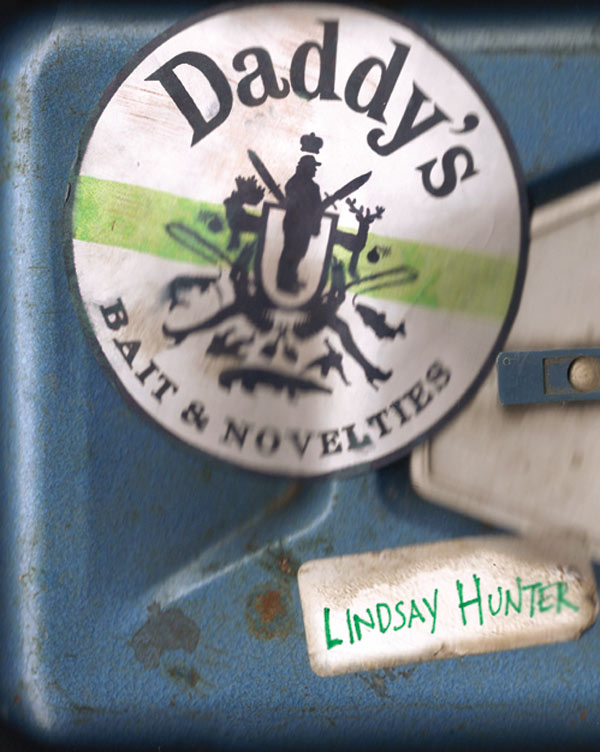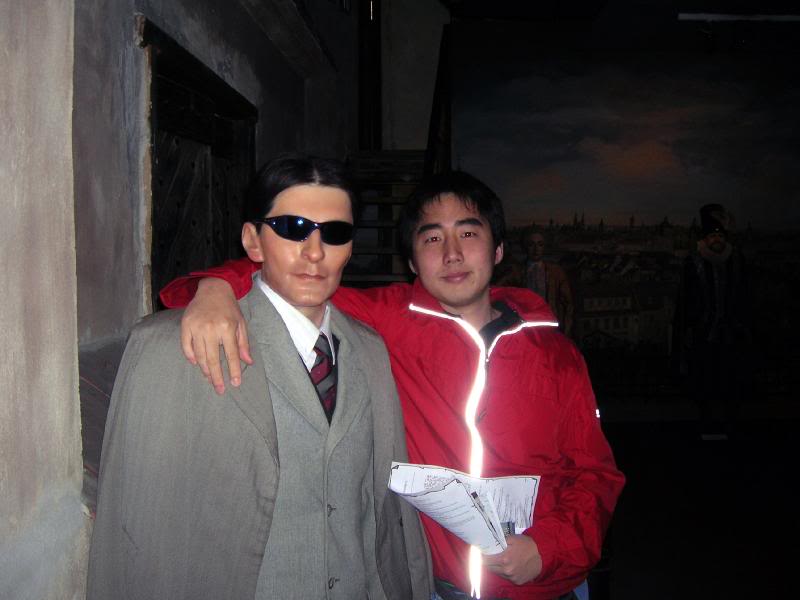David Foster Wallace’s The Pale King 4/15/11
Wallace’s unfinished novel The Pale King gets a cover and a release date: April 15, 2011. [via NY Times]

listen: This Noisy Egg
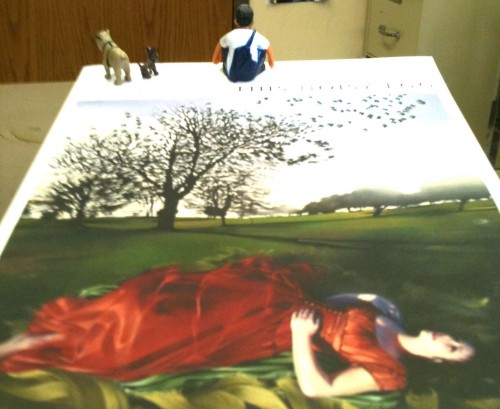
Because when I go outdoors, light splits
up my head and super siren dogs
try to eat my balls.
1. Your book seems to me to be full of movement. Feather-minded bullets and clutch-curls and tilting sways and breezes and tickling groins. Discuss.
Poems should move. Sometimes, when I think of poems, they seem so blocky and static on the page. I think that’s one reason people resist them. In these poems, I tried to get some flight into them—partially from that high-minded notion that poems should move but also probably from some less honorable fear that the poems will get stuck somewhere and I won’t be able to move it out from there. Like swinging on the monkey bars, if you lose momentum, you fall down. I resist resolution in the poems for the same reason—that tied-up-in-a-knot feeling that makes poems feel so smart but also so done. If I fully resolved something in a poem, I don’t know how I’d write the next one.
Amelia Gray’s Museum of the Weird
This is one for the decade, and came out today. You are going to need at least 1-3 copies. I’d say more but you probably already know. Or here are blurbs.
“Amelia Gray’s Museum of the Weird is a cabinet of curiosities—a talking armadillo, a serial killer named God, a woman who amputates her toes for dinner, a man married to a paring knife—this collection of stories is so good and funny and wondrous that I couldn’t look away from her dark and curious imagination.”—Michael Kimball
“To say Amelia Gray belongs in the hilariously inventive hallows of Ann Quin and Rikki Ducornet would be to miss her light. This book is gleaming evidence of the author as a trophy case unto herself, wrought of magic equally surprising, wicked, giddy, and loaded with a megaton of Boom.”—Blake Butler
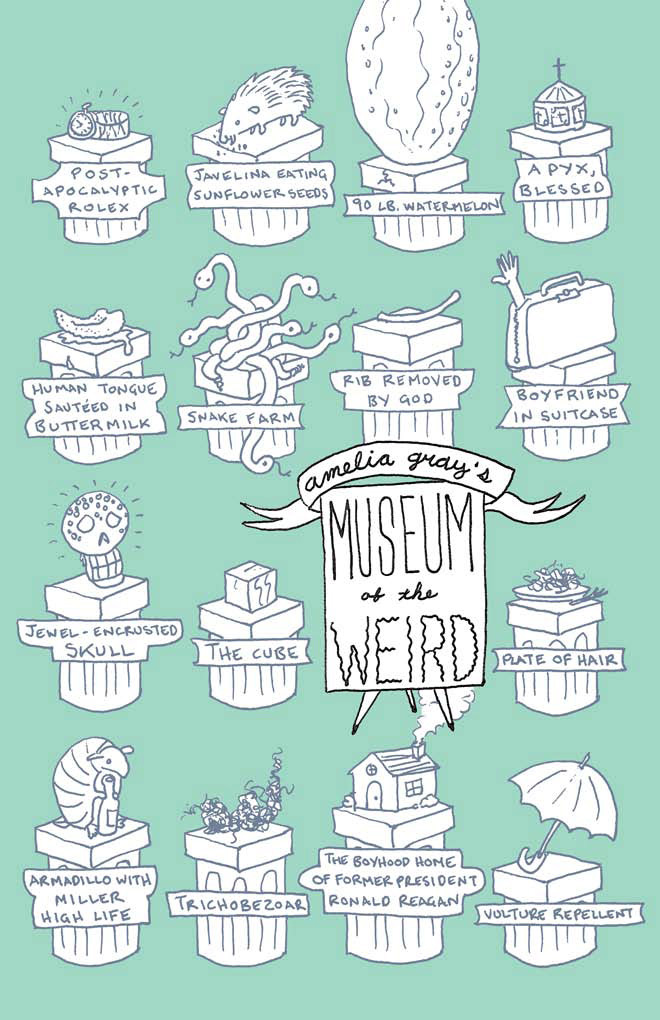
[Here is a sample text from the book: There Will Be Sense.]
Get get now. Do the get. Get the real: straight from FC2.
Or also available here.
Lindsay Hunter’s Daddy’s
Today marks the release of a book I’ve been waiting for itchingly for a good long while now: Lindsay Hunter’s could-not-be-better-titled collection Daddy’s, new from Featherproof. If you’ve ever seen Lindsay read live, you already are probably pressing buy: she slams heads. The book is shaped like a tackle box and guaranteed to be stuffed full of more freak than you might be able to handle in one read. She kind of makes Harry Crews and Angela Carter look like Jerry Seinfeld.
“In Daddy’s, babies mean blood, and nipples are like “lit match heads.” Lindsay Hunter transgresses where others fear to tread.” —Terese Svoboda, author of Pirate Talk or Mermalade
“Each tiny, diamond story—precise, comic, poised at the edge of surreal—contains one brutal life force tearing itself off the page. You can hold Daddy’s in your hands and feel it breathing.” —Deb Olin Unferth, author of Vacation
“Lindsay Hunter won’t be caught lie-telling in the name of nice. The miniature stories in Daddy’s are fierce and unapologetic. When the We’s she voices say the axblade was bloody with dirt, what they mean is the neighbor’s swingset creaked and moaned next door and we heard a child’s voice say Never ever. When I’m looking again for my next undoing, I’ll crack open Daddy’s, and get the true news they tell us we’d be better off not hearing.”—Kyle Minor, author of In the Devil’s Territory
For a taste, here’s one of the stories from the book, about a messed up baby: That One.
Get a further peek inside and place your order here.
Interview with Brian Conn
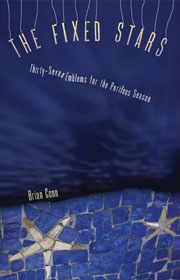 At Raintaxi, there’s an interview with Brian Conn, author of The Fixed Stars, a really wonderful novel—an anthropology of late capitalism, its language and myths. Conn answers Jedediah Berry’s questions about writing the book–structural choices, influences (including Cosmicomics, Marie Redonnet, Brothers Grimm), the interplay of language and math.
At Raintaxi, there’s an interview with Brian Conn, author of The Fixed Stars, a really wonderful novel—an anthropology of late capitalism, its language and myths. Conn answers Jedediah Berry’s questions about writing the book–structural choices, influences (including Cosmicomics, Marie Redonnet, Brothers Grimm), the interplay of language and math.
Conn wrote about half the book during a summer alone in Hawaii. Of that time he says,
After I finished a section I would wander around for several days trying to think of some event or voice or revelation that would, in some poorly comprehended yet very particular way, contradict everything that I’d already written. I’d discard idea after idea, and then at some point I’d think of an idea and laugh out loud, suddenly and involuntarily, and this idea would be the basis of the next section.
I now think of that summer as a time of intoxicating creativity, and simultaneously of terrifying confusion and despair. I’m sure these two impressions are closely related. I can see the causality flowing in either direction: maybe creativity is actually deeply terrifying, maybe confusion and despair forced me to abandon my usual thinking and reach for something new. Maybe both.
You Were Wrong
In the ever-evolving effort to figure out how to use internet video to sell books, Matthew Sharpe has hit on this idea: introduce themes from the book in six silly, strange, short little videos in which the author plays a video artist named Marc Sharf.
Personally, I like them—I like the absurdist energy and the seemingly unnecessary play with identity. (Sharpe’s books are funny, but darkly funny. The character may be a way to break from that.)
So, what do you think? Is this a step in the right direction? Will these videos help sell books? (I was already on board, and my copy of You Were Wrong is on my nightstand.) Did he get you? Did he lose you?
(Weird that this post appears after a Jonathan Franzen post, eh? Franzen was a champion of Sharpe’s novel The Sleeping Father.
Profile of Eugene Marten in the NY Observer. Damn, nice. I like that picture. I want my skull to look like that when I’m 50.

